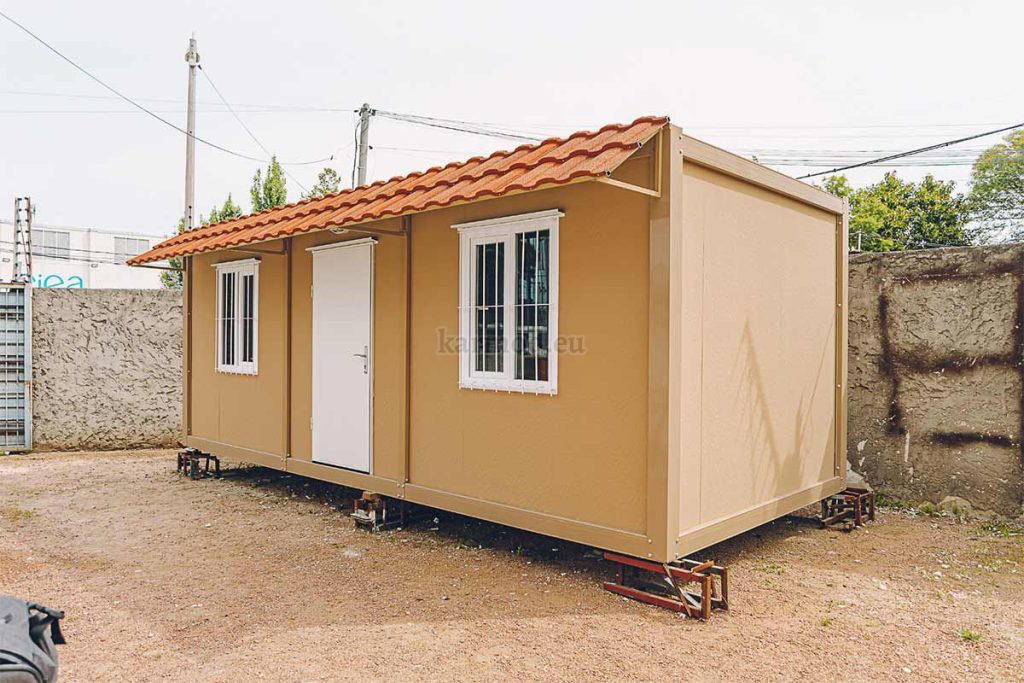Nigerians are grappling with high costs of living including cement as the prices of 50kg are between N10,000 to N11,000.>>>READ FULL ARTICLE HERE
Thank you for reading this post, don’t forget to subscribe!
Despite a recent agreement from cement manufacturers like Dangote Cement, BUA Cement, Lafarge Africa, and other major producers to cap the prices between N7,000 to N8,000, Nigerians are still groaning.
Although President Bola Tinubu has called on cement companies to further review the prices, it has been difficult for Nigerians to build houses during this hardship.
In this article, Vanguard reveals four ways to build houses with little or no cement in Nigeria.
1. Container house
Building a house with container is fast becoming popular not only in Nigeria but around the globe. This undoubtedly is cheaper than building houses with cement. It only requires a few bags of cement where the container needs to be erected for foundational purposes.
Apart from its affordability, building houses with containers is durable, fast, sustainable, and reliable. The most interesting benefit is that is portable. Container houses can be moved from one place to another in case of relocation.

The disadvantage of this building is that it tends to be hot during the sunny atmosphere or dry season but adequate provision of airconditioners and other cooling gadgets can make the houses comfortable.
The containers to build houses can be purchased from steel and aluminum dealers around the country, and civil engineers can also provide excellent counsel in building this kind of shelter.
2. Wooden house
Constructing houses with wood also requires little or no cement, and Nigerians can save money in getting themselves comfortable homes. This kind of house is innovative and becoming exquisite. Different kinds of wood can be used to build houses but they have to be strong, and only a few portions of cement would be required.

It is noteworthy that wooden houses provide durability, and sustainability and are not time-consuming in construction.
The demerit of wooden houses lies in the destruction from termites but this can be tackled when the woods are adequately depurated with insecticides and other necessary chemicals, and make it well-furnished.
Wooden houses are constructed by civil and structural engineers, and they can provide quality professional services with beautiful designs.
3. Plastic-bottle house
Another important means of building houses with little use of cement is plastic bottles filled with sand. The use of plastic or pet bottles to construct shelters is less expensive compared to cement-building houses.
Using plastic bottles for buildings serves the purpose of reusing plastic bottles which is one of the means of energy conservation as climate change issues continually become a global headache. This can save embodied energy by using them instead of bricks in walls and decrease pollution in cement manufacturing by lowering the percentage of cement utilised.

This is possible when people fill the plastic bottles with sand and stack them on their sides to create a wall, which is then bound together with mud. The resulting bottle wall is said to be 18 times stronger than one made with regular bricks and can withstand earthquakes – and even bullets.
The benefits of building houses with plastic bottles include affordability due to cheap means of getting plastic bottles, preservation of natural resources, and reduction of the carbon footprint and the technology used is small and easy to implement.
4. Brick house
Building houses with bricks is both fashionable and less expensive, especially with the rising cost of cement in Nigeria. The bricks are made from clay and shale and using them to erect houses only demands a small portion of cement. Bricks absorb sounds and vibrations, and serve as a mechanism to regulate. One of the benefits is that the natural resources to make bricks are readily available.

While the use of bricks for houses is not advisable in high seismic zones, it has higher durability and reduces the risk of cracks in buildings. With the high prices of cement, building houses with bricks remains one of the cheapest and easiest ways.>>>READ FULL ARTICLE HERE
